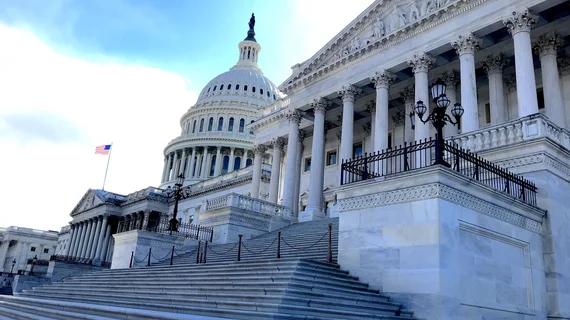House votes to extend telehealth benefits
The U.S. House of Representatives passed a bill that extends telehealth benefits implemented during the COVID-19 pandemic.
The bill, Advancing Telehealth Beyond COVID–19 Act of 2022, would make permanent telehealth flexibilities under Medicare that were initially authorized during the public health emergency relating to COVID-19. The House bill extends the telehealth flexibilities until through 2024.
The bill specifically allows federally qualified health centers and rural health clinics to serve as the healthcare provider. In addition, the rules allow beneficiaries to receive telehealth services at any site, regardless of type or location, as well as allow any type of practitioner to furnish telehealth services. The flexibilities also extended to allow audio-only evaluation and management, and behavioral health services.
Healthcare organizations applauded the move by the House, and many industry experts have called for the added flexibilities to be permanent.
“Increased Medicare-covered access to telehealth has been a lifeline to patients and physicians throughout the COVID-19 pandemic, and the American Medical Association (AMA) is pleased by today’s bipartisan vote in the House,” AMA President Jack Resnick, MD, said in a statement. “The COVID-19 public health emergency made plain that care via telehealth should be available to all Medicare patients, especially with their own physicians, regardless of where they live or how they access these services. From continuity of care, broadened access to care, and removing geographic and originating-site restrictions, our hope is that the flexibilities afforded during the public health emergency will be made permanent.”
The bill, which now moves to the Senate for a vote, comes as telehealth usage skyrocketed during the early days of the COVID-19 pandemic, after healthcare organizations temporarily halted elective procedures and many Americans put off routine healthcare services to reduce the risk of exposure and spread of the virus.
“We saw telehealth services widely and successfully adopted during the COVID-19 pandemic, now we must ensure those services are here to stay,” Rep. Debbi Dingell (MI-12), a sponsor of the House bill, said in a statement. “For seniors, traveling to a doctor’s office can be a prohibitive barrier to receiving the care they need, and we cannot allow people who have come to rely on telehealth throughout the pandemic to have that resource taken from them. This legislation brings us one step closer to permanently expanding telehealth services and allowing Americans to continue to access critical healthcare from the comfort of their home.”
While many have applauded the added flexibilities for telehealth, the potential for fraud has also risen as a result. Recently, the Department of Justice announced an indictment involving three dozen people for the alleged roles in a $1.2 billion telemedicine scheme.

